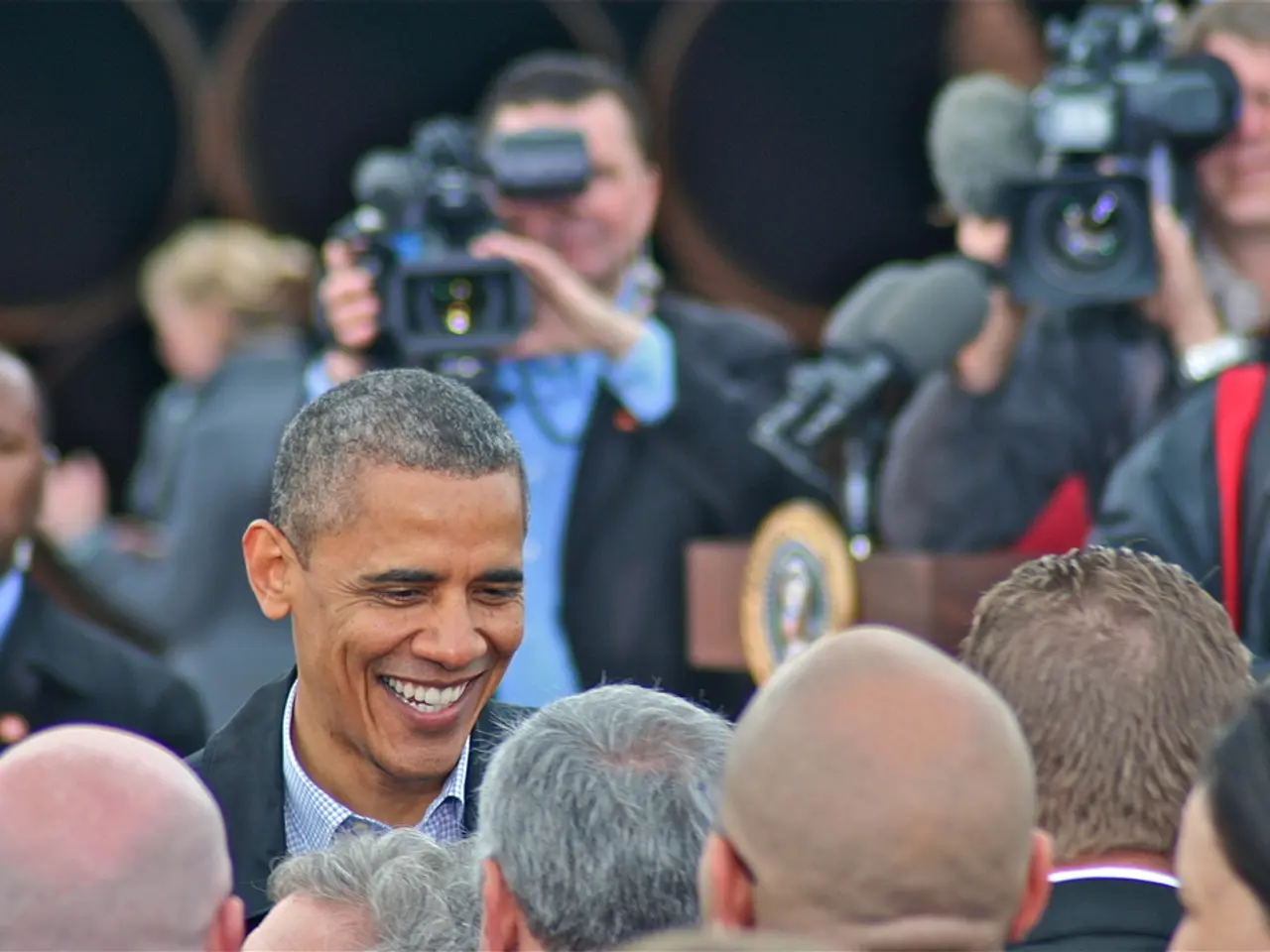AI in Film Production: Transforming Movie-Making with Artificial Intelligence-Generated Videos
In the ever-evolving world of filmmaking, artificial intelligence (AI) is making a significant impact. AI-generated films are pushing the boundaries of creativity, democratizing the filmmaking process, and opening doors for a new wave of storytellers.
Some notable examples of AI-driven films include "Sunspring" (2016), a sci-fi short film entirely written by an AI system trained on screenplays, demonstrating AI's capability in automatic scriptwriting. Another remarkable creation is "The Great Voyage" (2025), a three-minute AI-generated film produced by Google DeepMind. This film, based on 1800s vintage photographs, uses a fine-tuned image generation model (Google Imagen) to create images in the style of the photos and animates the stills into video using Veo 2 Image to Video. The story and prompts were also generated by AI (Gemini), mimicking silent movie formats with AI-generated title cards and soundtrack.
"Electric Pink" (2025), an AI-driven film by Henry Daubrez, stands out for its high creative and technical skill. It employs Imagen 3 for image generation and Veo 2 for animation, making it challenging to distinguish AI involvement visually. Meanwhile, films like "Zone Out" (2020) showcase AI's role in post-production tasks, as it was edited entirely by AI.
Classic films like "The Irishman" (2019) and "Avengers: Endgame" (2019) have also leveraged AI for specific effects, such as de-aging actors and enhancing motion capture, rather than fully AI-generating the film.
The creation of AI-generated films involves several stages. Scriptwriting may involve AI systems trained on vast screenplay datasets to generate dialogue and storylines. Image Generation utilizes AI models like Google Imagen or Imagen 3 to generate still images or character designs based on prompts or existing visual styles. Animation tools like Veo 2 can animate AI-generated still images into sequences, turning static visuals into moving images. AI can automate editing processes, arranging scenes or sequences, as in the case of "Zone Out." Visual Effects include AI-assisted facial animation, de-aging, motion capture enhancements, and even deepfakes, enhancing realism and creative possibilities in films. Sound and Music may be generated by AI to create an immersive experience.
However, while AI can generate storylines, visuals, and animations, human input remains crucial for coherence, emotional depth, and artistic vision. AI-generated films like "PLSTC" and "Expanded Childhood" evoke a wide range of emotions and aesthetics, but they are not entirely devoid of human touch.
The potential for misuse of AI to create misleading or harmful content is a serious concern. As these tools continue to evolve, we can expect to see even more innovative and thought-provoking content. The world of filmmaking is undergoing a transformation with the use of artificial intelligence.
AI is poised to become a powerful collaborator in the filmmaking process, augmenting human creativity and unlocking new possibilities. Companies like Waymark are using AI to create customized video ads for businesses of all sizes. Runway's Gen-2 produces short video clips from text prompts, while AI models like DALL-E 2 and Midjourney generate images from textual descriptions.
The future of AI-generated video is bright, with a new wave of hybrid films likely to emerge, seamlessly blending human creativity with AI ingenuity. However, copyright issues have arisen due to the use of copyrighted material in the training datasets of AI models. As we navigate these challenges, we can look forward to a future where AI and human creativity converge to create unprecedented cinematic experiences.
AI's influence extends beyond the realm of film editing, reaching into the realm of technology, shaping the future of artificial-intelligence-driven films. Notable examples like "Sunspring" and "The Great Voyage" exemplify AI's versatility, with the latter showcasing AI's capabilities in image generation, storytelling, and animation.
Moreover, the rise of AI-generated films signifies a shift in the creative landscape, as technology and artificial intelligence continue to democratize the filmmaking process, enabling a new breed of storytellers to emerge. In the context of the future, we can anticipate the development of hybrid films that seamlessly blend human creativity and AI ingenuity.




